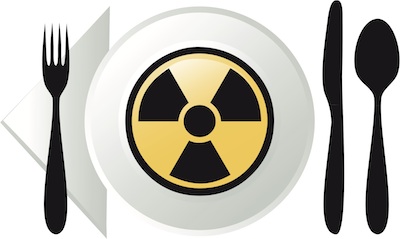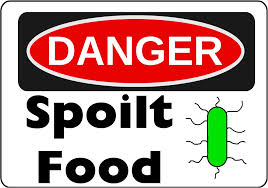
How to Avoid Food Poisoning during Travel?
Major Cause of Food Poisoning
Harmful microorganism and chemical substances are the two major causes of food poisoning. When you travel to foreign countries, especially developing countries, chances of you getting food poisoning are higher because food safety and environmental issues are not well controlled and managed in those countries.
Most farmers in the third world countries use manure as fertilizer to grow vegetables. You probably can guess that there are various kinds of bacterias, germs or microorganism live in manure regardless whether they are harmful or not. Since you do not grow up in that area, your stomach might not get used to fighting those microorganism. Besides, not all manure are safe to human, pets or domestic animals feces are most likely contains pathogen that is harmful to human. As a kid who grew up in a third world country, I also came to understand the fact that food safety is not very well controlled and regulated. Hence, tourists should be more cautious with their food safety.
Chemical substances found in the soil and water due to contamination can get attached on the food. When I was in Tanzania, I had food poisoning that was caused by a chemical substance.
How To Avoid Food Poisoning
Besides harmful bacterias and chemical substances, you need to be aware of how food was stored and prepared before it is served for your consumption. For example, if you are trekking on mountain for days, you might want to check the freshness of the food served on your plate. The reason is because it is hard to store food at proper temperature during trekking. The food might not be as fresh anymore after two-three days of trekking. The best practice to handle this challenge is make sure you pay attention to the food served; if you notice that your meal is not fresh, or if it smells or tastes funny, do not eat it.
In Tanzania, Africa, most restaurants in the tourists’ spots prepare their food using bottled mineral water to reduce the possibilities of travelers getting food poisoning. Thus, be very mindful not to eat at restaurants where only the locals would go. You’re probably on a safer bet eating at touristy restaurants. Don’t try to be too adventurous.
When traveling to the third world countries, you need to know how to avoid foods that are not safe for your consumption. The rule of thumb/golden guidelines are:
1. Avoid eating salad/raw vegetables,
2. Avoid eating not fully cooked meat,
3. Avoid eating fruits with unpeeled skins, and
4. Avoid drinking non-labeled bottle water.
When you are more aware of food safety during a trip in the third world country, you will keep yourself out of food poisoning troubles majority of the time.
Back Up Plan
Understanding how to avoid food poisoning is essential, but you should also learn how to prepare yourself with alternative food sources during travel. I recommend bringing trail mix, energy bar, and powder/tablet fiber source during your trip just in case if the food served is not safe for you to eat. For example, if the only option for you to obtain fiber at a particular day is salad (raw vegetables), you might be better off putting the salad aside, start mixing your fiber drink and drink it as your fiber intake. Or, eat your high fiber energy bar. This way, you avoid risking yourself from food poisoning.
Now, what if you have already got food poisoning? What can you do besides visiting a clinic? What if there is no clinic around? Click here to find out how to treat food poisoning.



